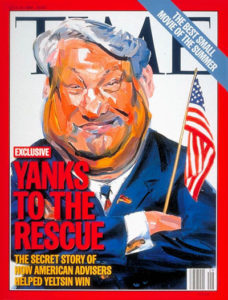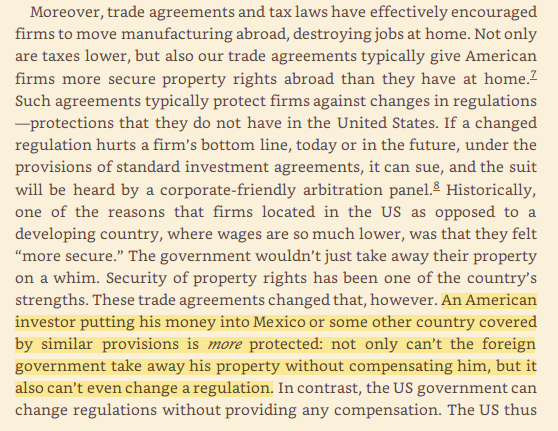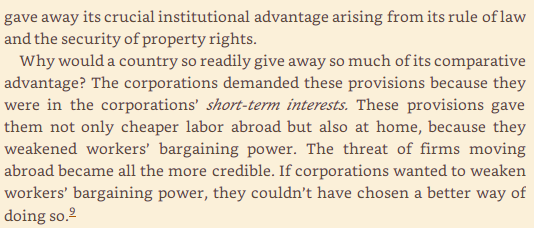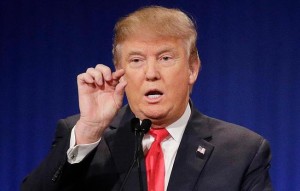
Image by Yuan2003
I’ve been predicting Saudi Arabia’s crackup for some time. Their society is completely dependent on oil revenues, and their rulers have no idea how to diversify off in time.
Couldn’t happen to a bigger bunch of jerks, though as usual, many innocents and powerless people will get dead, raped, and tortured as Saudi Arabia falls.
This piece by Jeff Spross, hasn’t changed my mind. It’s about how the Sauds are selling assets to get US dollars so they can pay for the changeover.
The expert Spross talks to has ideas on what the Sauds could use that money on:
Kaboub proposes the country use advanced aquaponics to build up its self-sufficiency in food — aquaponics can be done indoors for ten percent of the water used by traditional agriculture — and switch over to renewable energy. “It’s a prime location for wind and solar and geothermal,” he noted. Kaboub’s also a fan of a universal job guarantee, which he thinks can serve as a staging policy to lower unemployment and build up other domestic industries.
What does the royal family, lead by the Crown Prince bin Salman (of the Yemeni war and the chopping a journalist to pieces in the Istanbul embassy) think is a good plan?
For the moment, though, the Saudi government has a different vision. Their plan focuses somewhat on renewables and diversifying manufacturing, but the big initiative is on moving the economy more into high-end luxury tourism.
I am entirely sincere when I say that I never imagined they would be this stupid.
The Saud family’s days ruling Saudi Arabia are numbered. Praise God, because only he could have made them quite this imbecilic.
Lifted from the comments, by StewartM
Tourism?
As someone who knows someone who worked a stint in Saudi Arabia, this is gobsmacking. Let’s just name a few:
1) Want to go on a desert excursion? Oops, be careful, you may meet some religiously conservative armed Bedouins.
2) Hey, how about scuba diving along the coast? Well, don’t have an accident or the bends, because hospital services are limited to deal with it.
3) Public displays of affection are a no-no (we’re talking heterosexual husband and wife; don’t even thing same-gender). Mixing of the genders if they’re unrelated is a no-no too. The moral code is enforced by “volunteer” police zealots who have the power to detain you if they think you are breaking Islamic law.
Homosexuality and other violations of the Saudi Islamic moral code apply even in compounds exclusively for foreigners and are enforced in surprise raids.
4) Alcohol and pornography are banned. Mind you, the Saudis may deem your favorite character on the video game on your phone or laptop “pornographic” and seize your device, so their definition of “pornography” probably doesn’t match yours.
5) See something interesting? Want to take a photo? Don’t. You could be arrested for it, as a spy.
6) Don’t talk about politics, especially if it casts even the slightest detraction against the Saudi government or royal family.
7) Don’t wear any non-Islam religious emblems. Public observances of any other religious in a crime.
8) And let’s not talk about the difficulty in obtaining both an entry visa, and an exit visa, to boot. (I’d presume they’d fix that).
In short, Saudi Arabia would be a land where rich tourists would check into their $5,000-a-night hotel in a gated Western compound, and just stay there, not daring to go out. Oh, even then there might be a raid if immoral conduct is suspected.
Unless Crown Prince bin Salman’s plan involves remaking Saudi Arabia into a secular state, from stem to stern, Saudi Arabia will be a country where almost nobody wants to go visit. This is by design:
“My Kingdom will survive only insofar as it remains a country difficult to access, where the foreigner will have no other aim, with his task fulfilled, but to get out.” — King Abdul Aziz bin Saud, c. 1930
The results of the work I do, like this article, are free, but food isn’t, so if you value my work, please DONATE or SUBSCRIBE.
 It turns out that, yes, in fact they often made the difference in who won. Percentage shifts of five or six percent were common.
It turns out that, yes, in fact they often made the difference in who won. Percentage shifts of five or six percent were common.






 I keep seeing this talking point that “Trump will not leave voluntarily.”
I keep seeing this talking point that “Trump will not leave voluntarily.”